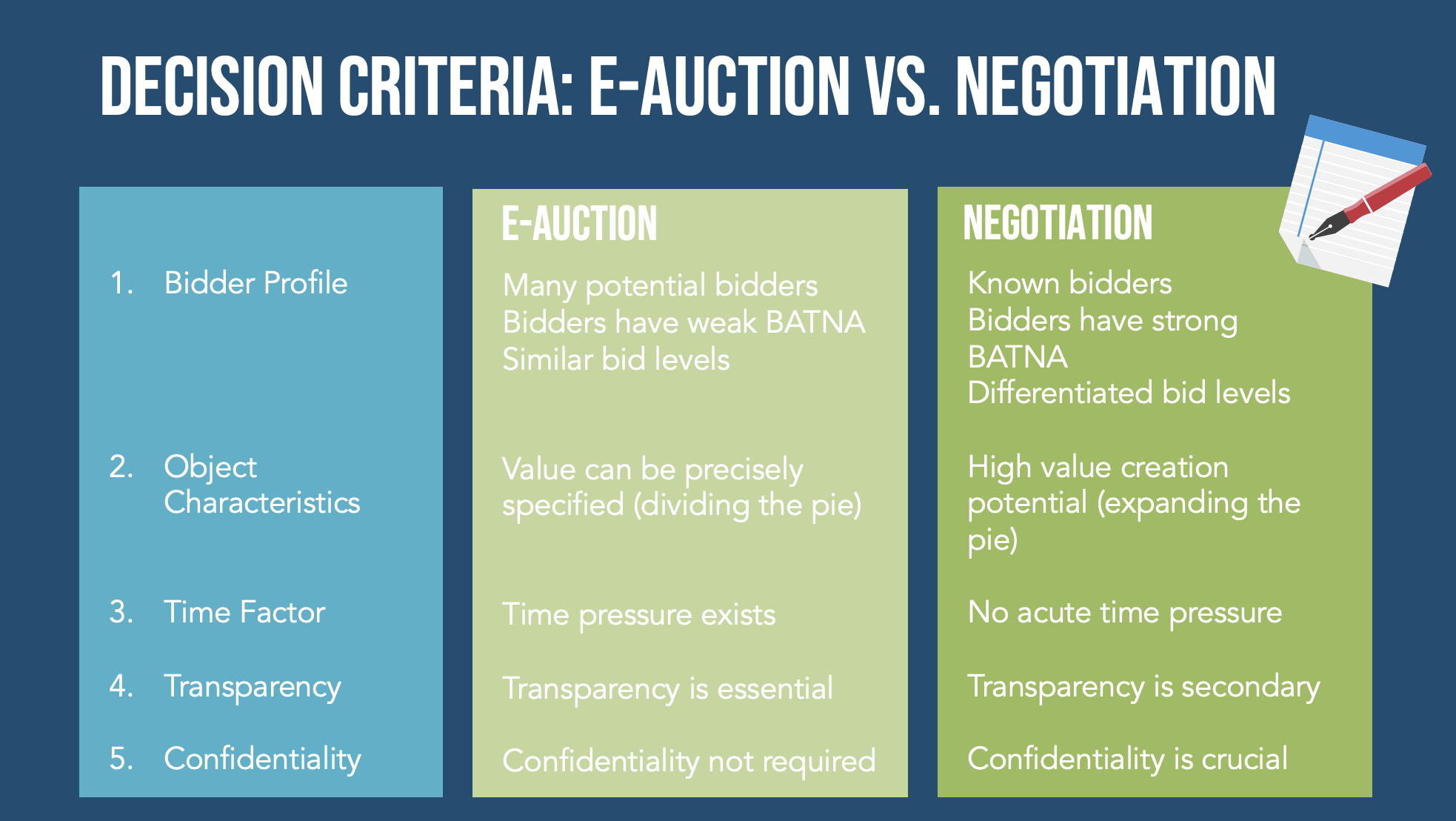22 Nov. Digital Negotiation Mastery: E-Auctions Made Simple
E-Auctions: Transparency Meets Speed
In the world of negotiation, e-auctions are a modern yet often underestimated method to achieve efficient and transparent business deals. Combining the principles of traditional auctions with digital technology, they enable companies to transform complex negotiations into structured, data-driven processes. But what makes e-auctions unique, and how do they differ from traditional negotiations?
What Are E-Auctions?
E-auctions (electronic auctions) are digitally conducted auction processes where buyers or sellers place bids in real time via an online platform. They are frequently used in procurement or sales to achieve the best prices, conditions, or offers. Depending on the objective, different auction types can be utilized, including:
- English Auction: Prices rise with each bid (commonly used in sales auctions).
- Dutch Auction:Prices drop until a bid is placed.
- Reverse Auction: Suppliers compete by lowering prices to win a contract (typical in procurement).
- Hybrid Models: Combinations of various auction formats.
The Unique Role of E-Auctions in Negotiations
E-auctions differ significantly from traditional negotiations in several ways:
- Structured Transparency
Unlike traditional negotiations, often influenced by subjective dynamics, e-auctions provide a clearly defined framework. Participants can see where they stand compared to others (e.g., through rankings or real-time bids), simplifying decision-making. - Time and Cost Efficiency
With automated, time-limited processes, e-auctions compress negotiations that might take days or weeks into just a few hours, saving resources and enabling swift decisions. - Data-Driven Outcomes
E-auctions generate extensive data on bids, behavior patterns, and market trends, which can be used to improve future negotiations or auctions. - Objective Evaluation
Unlike traditional negotiations, where personal relationships and emotions may play a role, e-auctions are based solely on measurable criteria like price, quality, or delivery time.
Challenges and Limitations
Despite their advantages, e-auctions are not a one-size-fits-all solution. Key challenges include:
- Complex Requirements: Not all goods or services are suitable for standardized auctions. Complex projects may require direct negotiation.
- Risk of Price Wars: In reverse auctions, suppliers may undercut each other to unsustainable levels, potentially leading to quality issues.
- Acceptance and Trust: Some participants may view e-auctions skeptically, especially if they feel disadvantaged by the process.
When Are E-Auctions Appropriate?
E-auctions are particularly effective in the following scenarios:
- Standardized Products or Services: When requirements are clear, such as for raw materials, transportation services, or standardized components.
- High Competition: When many suppliers with comparable offerings are available, auctions foster competition and optimize results.
- Cost Pressures: Companies prioritizing cost efficiency can achieve significant savings through e-auctions.
Best Practices for Successful E-Auctions
- Clear Specifications: Precise requirements help avoid misunderstandings.
- Market Analysis: Analyze potential suppliers and market conditions in advance.
- Technical Training: Ensure all participants are familiar with the platform to prevent technical issues.
- Strategic Planning: Selecting the right auction format is critical for success.
Conclusion
E-auctions represent a unique and innovative approach to negotiation. They provide structure, transparency, and efficiency, making them ideal for standardized and competitive markets. However, they require careful planning and strategic thinking to unlock their full potential. Companies that effectively integrate e-auctions into their negotiation strategies can secure long-term competitive advantages.
Back

